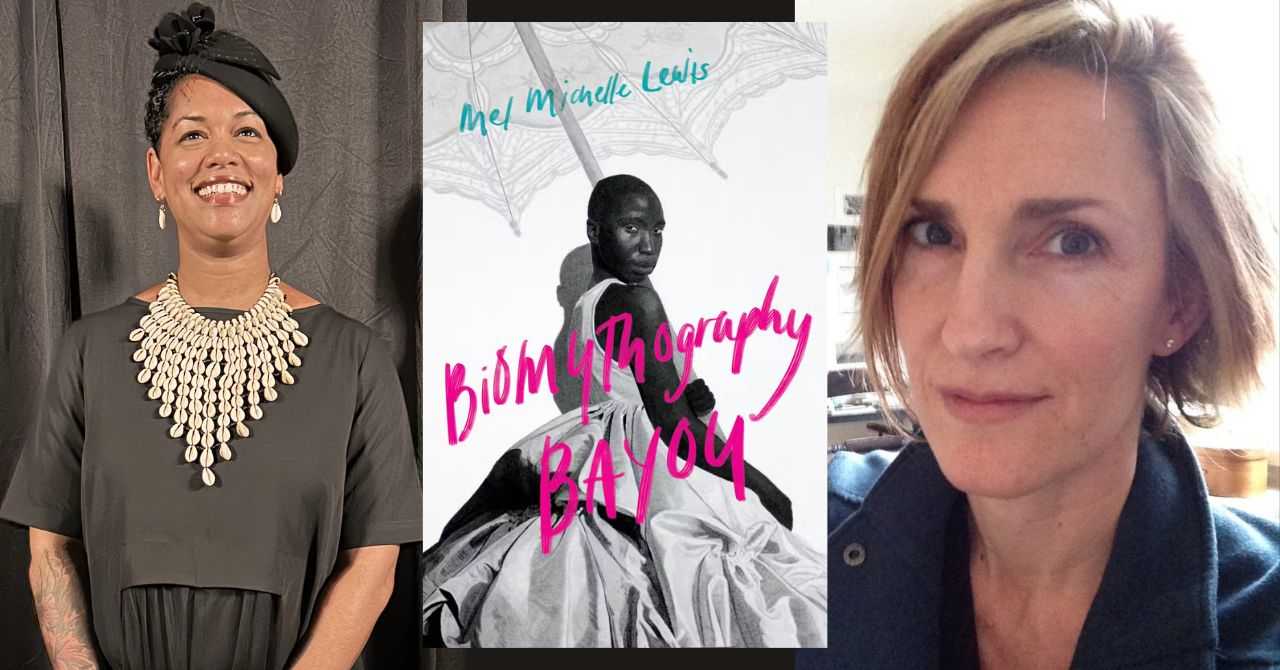- Cafe
- Bookstore
- Upcoming events
- Book an event
- Catering
- Institutional and bulk sales
- About Red Emma's
- Press
- Buy gift cards
- Red Emma's merch
- Jobs
- Red Emma's Education Fund
- Oleander
- Baltimore Book Festival 2025

Mel Michelle Lewis presents "Biomythography Bayou" in conversation w/ Ailish Hopper
This event has already happened.
When your story is rooted in the histories of your West African, Creek, and Creole ancestors, as well as your Black, feminist, and queer communities, you must create a biomythography that transcends linear time and extends beyond the pages of a book.
BIOMYTHOGRAPHY BAYOU_ _is more than just a book of memoir; it is a ritual for conjuring queer embodied knowledges and decolonial perspectives. Blending a rich gumbo of genres—from ingredients such as praise songs, folk tales, recipes, incantations, and invocations—it also includes a multimedia component, with “bayou tableau” images and audio recording links. Inspired by such writers as Audre Lorde, Zora Neale Hurston, and Octavia Butler, Mel Michelle Lewis draws from the well of her ancestors in order to chart a course toward healing Afrofutures. Showcasing the nature, folklore, dialect, foodways, music, and art of the Gulf’s coastal communities, Lewis finds poetic ways to celebrate their power and wisdom.
MEL MICHELLE LEWIS (she/they), vice president for people, justice, and cultural affairs at American Rivers, is a multidisciplinary artist, writer, teacher, and environmental justice practitioner. Their creative work explores nature writing themes in rural coastal settings through the lens of Black, Creole, Afro-Indigenous, and queer embodied knowledges. Originally from Bayou La Batre on the Alabama Gulf Coast, they currently reside in Baltimore.
AILISH HOPPER is a poet and multidisciplinary artist. The author of two books of poetry and numerous essays, she’s received fellowships from MacDowell, Maryland State Arts Council, and Yaddo, and her writing has appeared in American Poetry Review, Boston Review, Harvard Review, Poetry, and many other places. Her collaborations, the subject of one of her next books, explore self-determination, transformative repair, and non-extractive community-building, especially along racial lines. Essays in that book use a post-conflict approach to imagine rebuilding after white supremacism. At Goucher she teaches classes on nonviolence and transformative justice, social practice, poetry, and new narrative.

